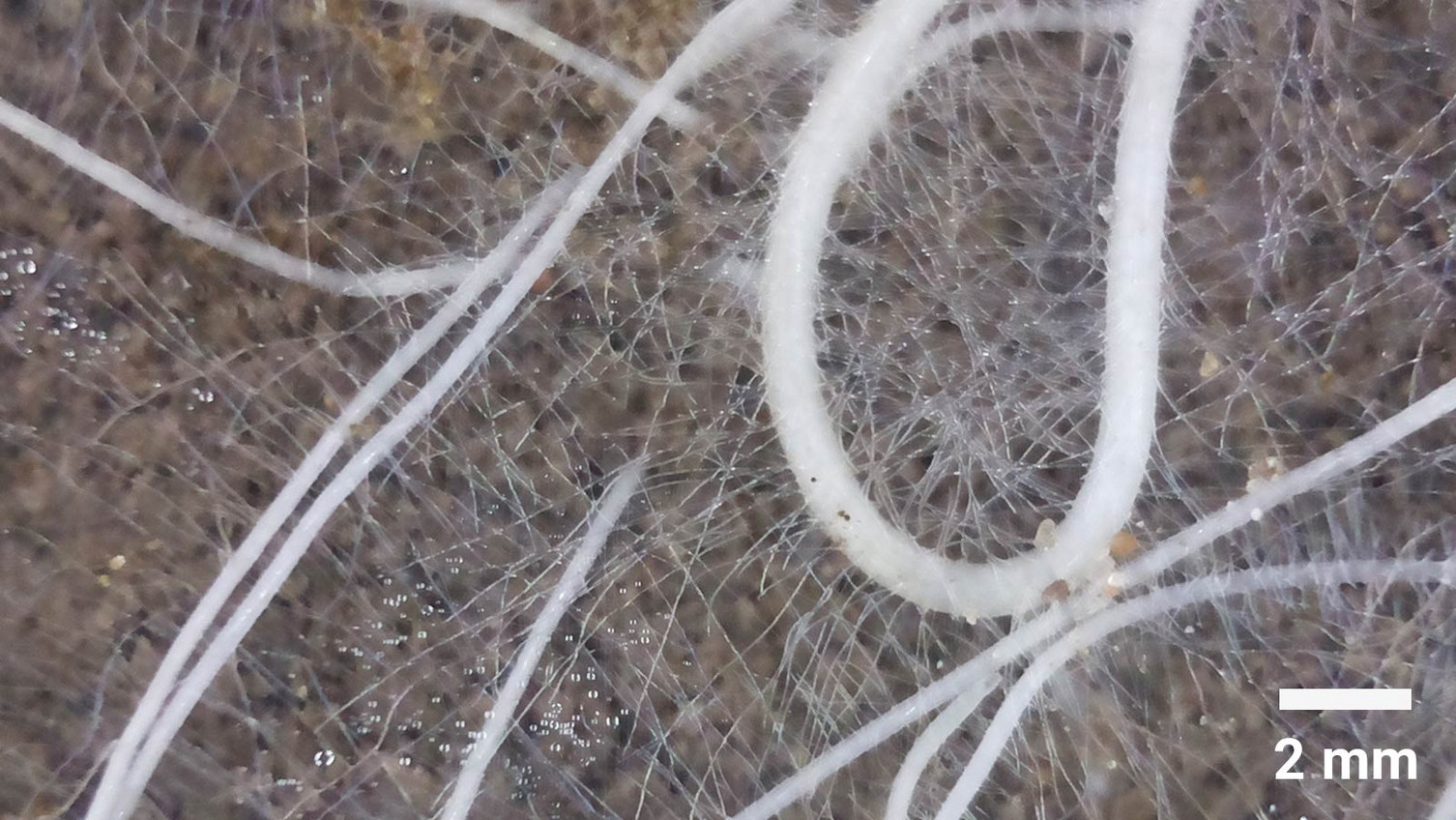Soil Ecology: Dr Benjamin Delory - The Legacy of Roots
2021-12-19 The 33-year-old bioengineer and post-doc at the Institute of Ecology has already established a synthesis working group with the renowned Stanford professor Tadashi Fukami. Now Benjamin Delory has obtained funding from the German Research Foundation (DFG) for his "ChemLegacy" project, which will fund his own position as principal investigator for the next three years. He was supported in this by the Research Service.
Plants strongly influence the soil environment in which they grow. In addition to taking up soil resources such as nutrients and water, plants are able to influence the composition of soil microorganisms such as bacteria and fungi. These plant-induced changes in soil properties can then affect how other plants will grow on the same soil in the future. This phenomenon is called “soil legacy effect” by ecologists. In his project, Dr. Benjamin Delory will focus on the chemical side of soil legacy effects. Over the next three years, he will conduct experiments to determine the extent to which different plant species affect the identity, diversity and abundance of soil chemical compounds, and whether the way plants respond to these soil chemical legacies can have consequences for the structure and functioning of plant communities.
For this, he was able to raise about 360 000 euros from the German Research Foundation with his project "ChemLegacy" - and secure his own position as principal investigator at the Institute of Ecology. The Research Service supported him in the application process.
Next year, Benjamin Delory will start the experiments and plant more than 200 large pots with different species that are commonly found in temperate grasslands. He will then regularly collect the soil solution in each pot and determine how other plants react to the chemical compounds found in the collected soil solutions. With collaborators from the German Centre for Integrative Biodiversity Research in Leipzig (iDiv; Prof. Nicole van Dam and Dr. Alexander Weinhold), he will also analyse the chemical composition of the soil solutions. The ecologist suspects that different plant species lead to different chemical legacies in the soil. "Elucidating the mechanisms by which plants interact with each other is one of the most fundamental questions in ecology, and the results of this research may have important implications for agriculture and ecological restoration," Benjamin Delory explains.
It was not the first time that the scientist successfully applied for funds. “The financial support I received from the Research Service allowed me to obtain the preliminary data that laid the foundation for the proposal I submitted to the DFG,” says Benjamin Delory. In addition, Leuphana's Graduate School funded his research stay at the University of Stanford (USA), where he worked with Professor Dr Tadashi Fukami on a proposal to set up a synthesis working group on the topic of priority effects. "In ecology, priority effects describe the influence of the order and timing of arrival of species on the assembly of ecological communities," explains Benjamin Delory. Their proposal received the full support from the iDiv synthesis centre in Leipzig, which will allow leading scientists from the USA, Canada, Switzerland, Sweden, Great Britain and Germany to pool their knowledge on priority effects in the coming years. Tadashi Fukami and Benjamin Delory are the principal investigators of this synthesis working group (sPriority).
The Belgian scientist came to Leuphana about six years ago. He studied bioengineering at the University of Liège (Gembloux Agro-Bio Tech) in Belgium and did his PhD on the roles played by root-emitted volatile organic compounds in belowground interactions between plants. At the end of his PhD, he also met Prof. Dr Vicky Temperton, Professor for Ecosystem Functioning & Services at the Leuphana Institute of Ecology, at a scientific conference in the Netherlands: "I was very fortunate to meet Vicky at this conference. I was looking for a postdoc position and Vicky and I share many research interests,” says Benjamin Delory. Since the beginning of his postdoc in Vicky Temperton’s group, he has been working on plant-plant interactions in grassland ecosystems, with a particular focus on the consequences of priority effects for the structure and functioning of plant communities.
The plant ecologist has already received several prizes for his work, such as a Travel Prize of the Root Phenotyping Working Group of the International Plant Phenotyping Network (IPPN) at a meeting of the International Society of Root Research in Jerusalem. The prize rewards a particular scientific commitment and encourages international mobility and exchanges between researchers.

